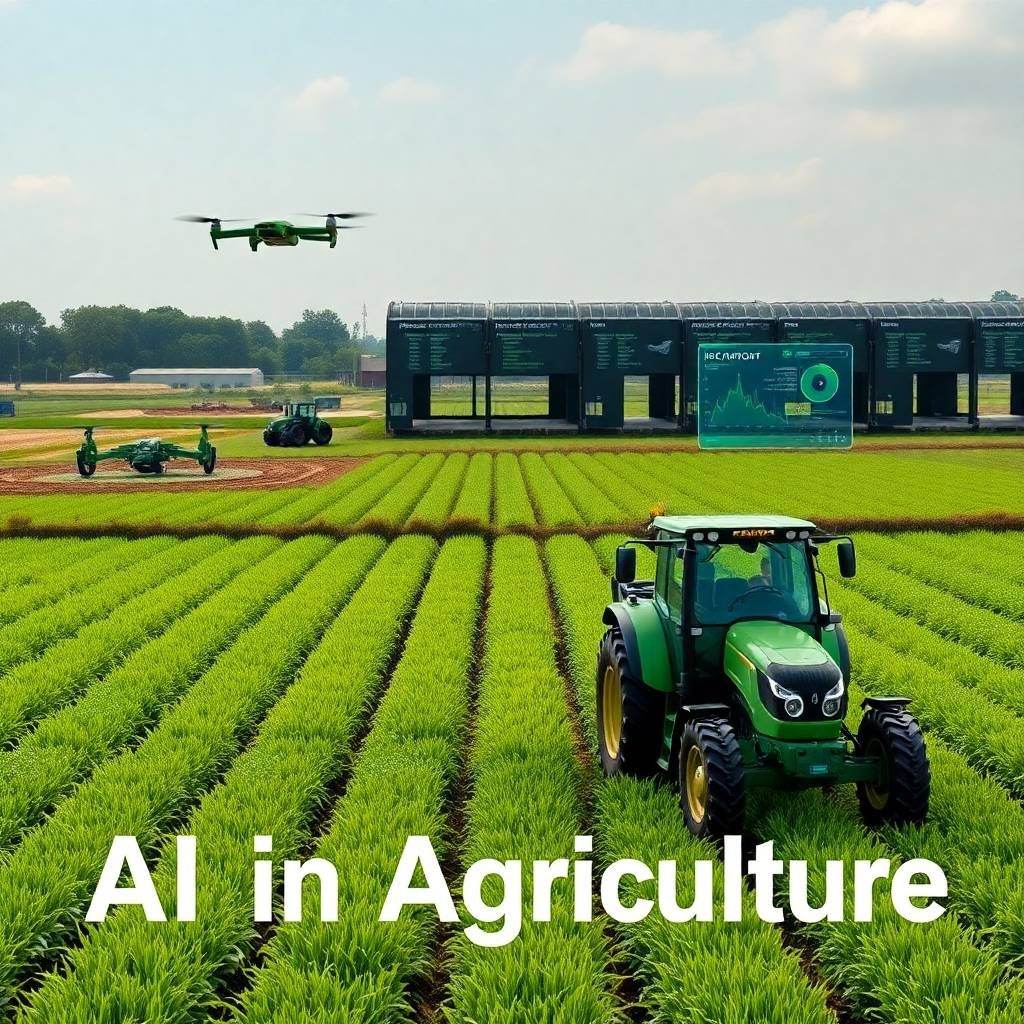Agriculture is undergoing a transformation with the integration of artificial intelligence (AI)
The Role of AI in Modern Agriculture
Enhancing Crop Management
AI technologies, such as machine learning and computer vision, are helping farmers monitor crop health and predict yields more accurately than ever before. For instance, AI algorithms can analyze images of crops to detect signs of disease or pest infestation early on, allowing for timely interventions.
Precision Farming
With AI, precision farming techniques allow for targeted interventions based on real-time data, optimizing resource usage and improving crop quality. For example, AI systems can analyze soil conditions and weather patterns to advise on the best times and methods for planting and irrigating crops, leading to increased yields and reduced resource wastage.
AI-Powered Tools and Technologies
Drones and Remote Sensing
Drones equipped with AI capabilities provide aerial imagery and data analysis for better field management and crop assessment. They can quickly survey large areas, identify crop health issues, and even assist in precision spraying of fertilizers and pesticides, reducing waste and enhancing yields.
Robotics in Agriculture
Robots are being used for tasks such as planting, harvesting, and weed control, reducing labor costs and increasing productivity. These AI-driven machines can work tirelessly, performing repetitive tasks with precision and speed, and are especially beneficial in addressing labor shortages and improving operational efficiency.
Benefits of AI in Agriculture
Increased Efficiency and Productivity
AI streamlines operations, leading to higher yields and reduced waste. By automating processes such as irrigation and fertilization, AI ensures resources are used more efficiently, ultimately boosting farm productivity.
Sustainable Farming Practices
AI supports sustainable practices by minimizing chemical use and optimizing water and energy consumption. For instance, precision agriculture techniques reduce the need for excessive pesticide and fertilizer use, leading to a smaller environmental footprint and healthier ecosystems.
Challenges and Future Prospects
Overcoming Technological Barriers
While AI holds great promise, there are challenges in technology adoption and integration that need to be addressed. Farmers may face difficulties related to costs, training, and the need for infrastructure upgrades to fully leverage AI technologies.
The Future of AI in Agriculture
Looking ahead, AI will continue to evolve, offering new solutions and innovations that could redefine the agricultural landscape. Advances in AI could lead to more sophisticated predictive models, autonomous farming equipment, and even more efficient resource management systems, ultimately ensuring food security and sustainability for future generations.
Conclusion
AI is set to transform agriculture into a more efficient, sustainable, and productive industry. By embracing these smart farming techniques, farmers can secure a better future for global food production and security. As AI continues to advance, it will open new possibilities for innovation, ultimately helping to feed the growing world population while preserving the planet’s resources.

